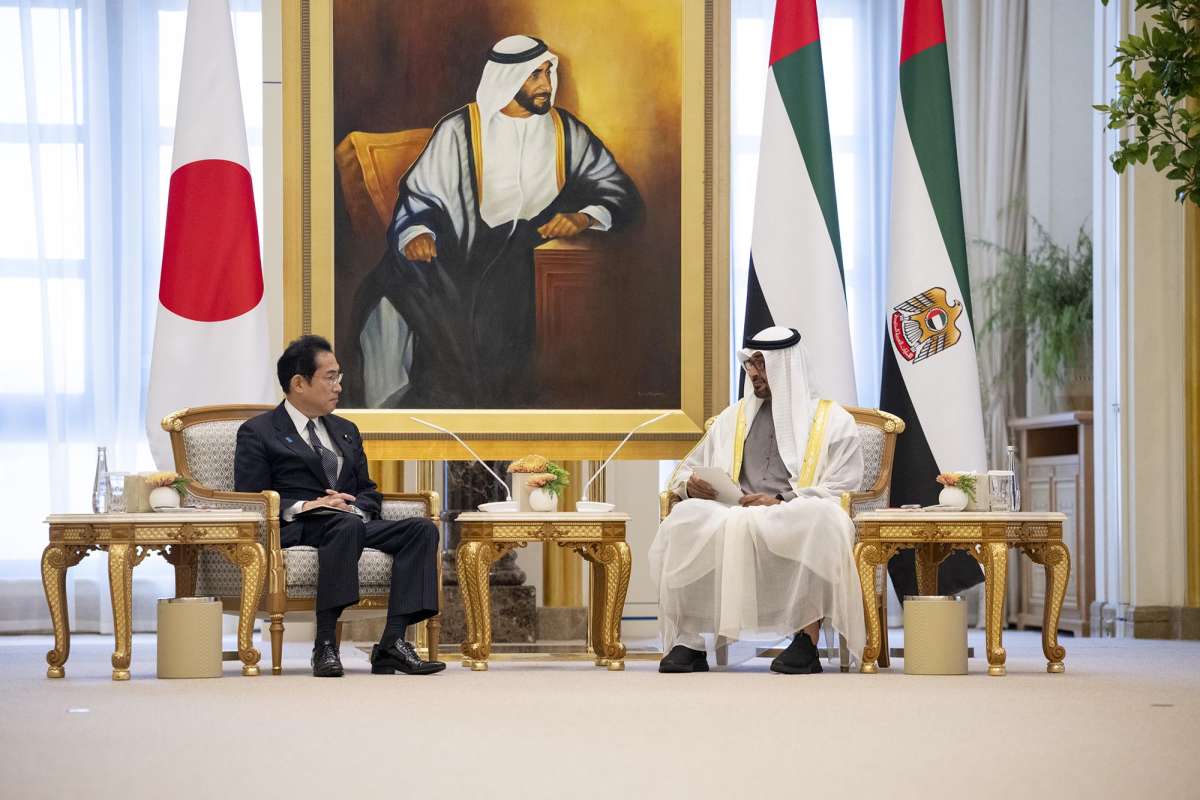The UAE focused on solidifying bilateral cooperation within the framework of climate diplomacy to advance economic development…reports Asian Lite News
The UAE and Japan are joining forces in many vital areas and current joint initiatives, which include hydrogen production and low-emission blue ammonia, to meet the ambitions of the two countries to benefit from new commercially viable technologies to reduce emissions.
For its part, the UAE focused on solidifying bilateral cooperation within the framework of climate diplomacy to advance economic development, enable low-emissions growth, and enhance energy security.
During the first session of the Political, Diplomatic, and International Cooperation Subcommittee, both countries also reaffirmed their shared commitment to addressing climate-related challenges in the lead-up to the Conference of the Parties of the United Nations Framework Convention on Climate Change (COP28), which will take place in the UAE this November.
Officials from both sides used the inaugural subcommittee meeting to explore opportunities for strengthening ties, through collaboration in areas such as trade and investment, energy technology, food security and enhanced cooperation in R&D.
For its part, the UAE is the second largest supplier of oil to Japan and an important source of natural gas and aluminum, covering more than 20% of its needs, in addition to continuing responsible investment to enhance its leadership as a reliable global energy provider.
The UAE, in turn, is a safe, stable and reliable source of energy for Japan, and it also plays the role of a strategic and cooperative partner in various fields.
Abu Dhabi National Oil Company (ADNOC) along with ADQ and Japan’s Mitsui & Co., Ltd (Mitsui) and the Republic of Korea’s (Korea) GS Energy Corporation (GS Energy) partnered with TA’ZIZ and Fertiglobe to develop the world-scale low-carbon blue ammonia facility at the TA’ZIZ Industrial Chemicals Zone in Ruwais. The partnerships aimed to accelerate Abu Dhabi’s position as a leader in low-carbon fuels, capitalising on the growing demand for blue ammonia as a carrier fuel for clean hydrogen.
The World-Scale Low-Carbon Blue Ammonia Project to be built in the industrial hub of Ruwais in the emirate of Abu Dhabi, will have the capacity to produce 1 million mt/year of blue ammonia Facility and expected to start production in 2025.
This project contributes to consolidating the UAE’s leadership in the field of low-carbon fuels by benefiting from the global demand for blue ammonia as a clean hydrogen fuel.
Abu Dhabi National Oil Company (ADNOC), ENEOS Corporation (ENEOS), and Mitsui & Co., Ltd. have formed a Joint Study Agreement to evaluate the development of a clean hydrogen supply chain between UAE and Japan.
The project aims to be developed in two phases, with first phase utilising by-product hydrogen from ADNOC’s system in Ruwais Industrial Area in Abu Dhabi, while Phase 2 envisages greenfield blue hydrogen production from natural gas. The hydrogen will be transformed to methylcyclohexane (MCH), an efficient form of hydrogen transport vector to export to Japan.
ADNOC entered into a joint study agreement (JSA) with two Japanese companies – INPEX Corporation (INPEX), JERA Co., Inc. (JERA), and a government agency, the Japan Oil, Gas and Metals National Corporation (JOGMEC) – to explore the commercial potential of blue ammonia production in the UAE.
The agreement builds on ADNOC’s low-carbon fuels leadership and extensive experience in carbon capture and storage. The joint study agreement with INPEX, JERA and JOGMEC provides a roadmap to deepen access to Japanese markets for ADNOC’s products and further strengthen the UAE’s hydrogen value proposition.
Abu Dhabi-based Masdar signed a memorandum of understanding (MoU) with Japan’s Sumitomo to explore developing a range of waste-to-energy projects across the GCC.
The range of projects includes a plant with the capacity to treat 390,000 tonnes a year and generate 25MW of power.

Leave a Reply